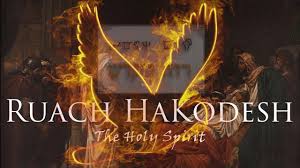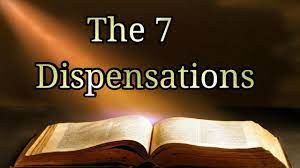Aw – Week 14: The Role and Priorities of the Wife Ephesians 5: 22-24
Week 14: The Role and Priorities of the Wife
Ephesians 5: 22-24
A woman who properly submits to her husband also submits to the Lord.

Because so much of the Church has long disregarded the full teaching of the Scriptures, many believers find some of its truths to be unfamiliar and even hard to accept. And because the Church has been so engulfed in, identified with, and victimized by worldly standards, God’s standards seem to be out-of-date, irrelevant, and offensive to modern thinking. His way is so high and contrary to the way of the world that it is incomprehensible to many in and out of the Church. Over and over again the B’rit Chadashah calls us to another dimension of existence, a new way of thinking, acting and living. To walk in a manner worthy of the calling to which you have been called . . . and clothe yourselves with the new nature created to be godly, which expresses itself in the righteousness and holiness that flow from the truth (4:1 and 24), is to fulfill the high calling to which we were called in a completely new life and in a completely new, Spirit-filled way.
The matter of submission: Wives should submit to their husbands (Ephesians 5:22a; Colossians 3:18; Titus 2:4-5). With an understanding of submission in mind, it must be noted that this command does not place the wife in an inferior position. All people, regardless of their position in life, are equal in standing before God through Messiah (Galatians 3:28). The world may place a greater or lesser value on persons as was true in the first century Roman Empire. In that world (and still in some places today), wives were considered as property and also greatly inferior to their husbands. The Rabbi encourages the wives to be in correct biblical submission – not subservient, but as a complement, an equal, to her husband.
Wives are always given great social status in Judaism as illustrated in the following rabbinic quote: Honor your wife, for thereby you enrich yourself. A man should be ever careful about the honor due to his wife, because no blessing is expected in his house except on her account (Tractate Bava Metzia 59a). It is therefore logical that the B’rit Chadashah affirms their distinctive role in marriage. Women have many gifts. The mothering instinct not seen in most men is something unique to women. In a connected theme, Sha’ul also encourages the Messianic wives to respect their husbands. Men often look for this in the marriage relationship and women should be motivated as they realize they are actually showing respect to Messiah in the process (5:33). But what are women to do if they are married to an unbeliever?
Guidelines for believers married to unbelievers who want to stay married (First Corinthians 7:12-14): Yeshua, in the course of His ministry, had never addressed this issue. But Paul, with no less authority did. With two sets of perfectly balanced sentences, he says that believers are not to initiate divorce proceedings: To the rest I say – I, not the Lord: if any brother has a wife who is not a believer, and she is satisfied to go on living with him, he should not leave her. Also, if any woman has an unbelieving husband who is satisfied to go on living with her, she is not to leave him (First Corinthians 7:12-13). Indeed, Peter also instructs married women that they should submit to their husbands, so that even if some of them do not believe the Word, they will be won over by your conduct (First Peter 3:1a). While Paul does not reflect on this here, it certainly must have been difficult for a woman in Corinth to stand out alone in a marriage and to accept Yeshua Messiah as her Lord and Savior. In most cases in Greco-Roman society, the religion of the father in the family was the religion of the whole household (Acts 16:33-34). Undoubtedly, then, for a wife to go against the religion of the household and become a believer must have, in some cases at least, led to intense friction in the home.
Believers married to unbelievers were not to worry that they, themselves, their marriage, or their children would be defiled by the unbelieving spouse. On the contrary, just the opposite is true. Divorce was to be avoided because the believing spouse was, and is, a channel of God’s grace in the marriage. For the unbelieving husband has been sanctified through his wife, and the unbelieving wife has been sanctified through her believing husband. Being unequally yoked (see my commentary on Second Corinthians, to see link click Bi – Do Not Be Unequally Yoked with Unbelievers), one flesh with an unbeliever, can be frustrating, discouraging, and even costly. But it need not be defiling because one believer can sanctify a home. Sanctified here refers to being set apart. Sanctification in this context is matrimonial and familial, not personal or spiritual.
Furthermore, God looks on the family as a unit. Even if it is divided spiritually, and most of its members are unbelieving and immoral, the entire family is sanctified by the believer among them. Therefore, if an unbelieving spouse is willing to stay, the believer is not to seek a divorce. Otherwise, your children would be unclean, but as it is, they are holy (1 Cor 7:14). Just the presence of one believer will protect the children. It is not that their salvation is assured, but that they are protected from undue spiritual harm and that they will receive spiritual blessing because they share the spiritual benefits of the believing parent. Often the testimony of the believing parent in this situation is effective, because the children see a clear contrast to the unbelieving parent’s life, and that leads them to salvation.
Guidelines for believers married to unbelievers who want to leave (First Corinthians 7:15-16): Paul now moves to the next step; there is an exception to the rule of no divorce. But if the unbelieving spouse leaves (Greek: chorizo, meaning separate), let him leave. In keeping with the whole argument, Paul once more qualifies the ideal with an exception. The believer may not pursue divorce, but if the pagan wants to leave, let them do so. This verse does not say, “If the pagan begins divorce proceedings.” Words mean something, and chorizo simply means to separate, or to leave. If a wife had to rely on a vindictive fleeing pagan husband to begin divorce proceedings, she would be left in a state of slavery. Her only crime was faith in Messiah. However, in circumstances like these, the brother or sister is not enslaved, and is able to divorce and remarry. God has called you to a life of peace, not slavery (First Corinthians 7:15).
Marriage was not designed for an evangelistic tool. Missionary dating is a bad idea; and missionary marriages are bad if the unbelieving spouse leaves. Far too many young brides or grooms have been led away from Messiah as a result of the influence of the unbelieving spouse. For the wife has no assurance that she will save her husband, and the husband has no assurance that he will save his wife (1 Cor 7:16)? To cling to a marriage in which the pagan is determined to end would inevitably lead to frustration and tension. The certain strain is not justified by the uncertain result. The guiding principle must be peace.
The manner of submission: The manner or attitude of submission is to be as they do to the Lord (5:22b). This does not mean that a wife is to submit to her husband in the same way she submits to the Lord, but rather that her submission to her husband is her service to the Lord. Everything we do in obedience to the Lord should also be done first of all for His glory and to please Him. A woman who properly submits to her husband also submits to the Lord. This explains why a believer should marry a believer and not become unequally yoked together with an unbeliever. Such a home invites civil war from the beginning.
The motive of submission: For the husband is the head of the wife as Christ is the head of the Church (5:23a). Sha’ul will have more to say about this with regards to the role of the husband (see my commentary on Ephesians Bx – The Role and Priorities of the Husband), but the overriding principle is stated here. God’s directions are clear. The wife is called upon to place herself under the authority and leadership of her husband, and the husband is to love his wife as Messiah loved the Church. This does not mean that the husband should be a dictator or that the wife should be a doormat. The husband is to lead through sacrifice and love, and the wife is to submit with sincerity and respect.
The fact that the husband is to serve as the head of the family as a servant leader, exemplifies Yeshua Himself. He came as a leader by serving others, even to the point of self-sacrificing death on the Roman cross. This is clearly the greatest example husbands have and clearly defines the biblical idea of headship in marriage. Hence, the Rabbi encourages the wives to submit to their husbands even as they submit to Yeshua.
The model of submission: He Himself being the Savior of the Body (5:23b). The supreme and ultimate model of submission is Yeshua Messiah Himself, who performed the supreme act of submission by giving His own sinless life to save a sinful world. Messiah is the Savior of the Body, His Church, for whom He died on a Roman cross. He is the perfect Provider, Protector, and Head of His Church, which is His Body. He is the divine role model for husbands, who should provide for, protect, preserve, love, and lead their wives and families in the same way that Messiah cares for His Church. Wives are no more to be co-providers, co-protectors, or co-leaders with their husbands than the Church is to have such roles with Yeshua Messiah. But just as the Church submits to Messiah, so also wives should submit to their husbands in everything (5:24). To follow God’s plan for the family not only is pleasing to Him, but is the only way to godlier, happier, and more secure homes. His plan is neither for the exaltation of men and the suppression of women, nor for the exaltation of women and the suppression of men, but for the perfection and fulfillment of both men and women as He has ordained them to be. Such perfection and fulfillment can only be made possible by the filling of the Ruach Ha’Kodesh (see my commentary on Ephesians Bt – Be Filled with the Ruach).

















